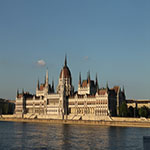Euroacademia Conferences
 Europe Inside-Out: Europe and Europeanness Exposed to Plural Observers (9th Edition) April 24 - 25, 2020
Europe Inside-Out: Europe and Europeanness Exposed to Plural Observers (9th Edition) April 24 - 25, 2020 Identities and Identifications: Politicized Uses of Collective Identities (9th Edition) June 12 - 13, 2020
Identities and Identifications: Politicized Uses of Collective Identities (9th Edition) June 12 - 13, 2020 8th Forum of Critical Studies: Asking Big Questions Again January 24 - 25, 2020
8th Forum of Critical Studies: Asking Big Questions Again January 24 - 25, 2020 Re-Inventing Eastern Europe (7th Edition) December 13 - 14, 2019
Re-Inventing Eastern Europe (7th Edition) December 13 - 14, 2019 The European Union and the Politicization of Europe (8th Edition) October 25 - 26, 2019
The European Union and the Politicization of Europe (8th Edition) October 25 - 26, 2019 Identities and Identifications: Politicized Uses of Collective Identities (8th Edition) June 28 - 29, 2019
Identities and Identifications: Politicized Uses of Collective Identities (8th Edition) June 28 - 29, 2019 The European Union and the Politicization of Europe (7th Edition) January 25 - 26, 2019
The European Union and the Politicization of Europe (7th Edition) January 25 - 26, 2019 7th Forum of Critical Studies: Asking Big Questions Again November 23 - 24, 2018
7th Forum of Critical Studies: Asking Big Questions Again November 23 - 24, 2018 Europe Inside-Out: Europe and Europeanness Exposed to Plural Observers (8th Edition) September 28 - 30, 2018
Europe Inside-Out: Europe and Europeanness Exposed to Plural Observers (8th Edition) September 28 - 30, 2018 Identities and Identifications: Politicized Uses of Collective Identities (7th Edition) June 14 - 15, 2018
Identities and Identifications: Politicized Uses of Collective Identities (7th Edition) June 14 - 15, 2018
EU Enlargement in the Hungarian Perspective
-
-

-
Presentation speakers
- András Hettyey, The Danube Institute, Budapest, Hungary
Abstract:
Analysts and politicians alike agree that the Enlargement policy of the European Union is in a serious crisis. While Croatia will enter the Union next year, the further future of the whole enlargement project hangs in a balance. The political elite in most member countries – above all Germany and France – are skeptical towards further accessions. The public support for further enlargement is low throughout Eastern and Southern Europe. Moreover, the candidate and possible candidate states in the Balkans have various domestic (political turmoil in Albania and Bosnia) and international (the unresolved status of Kosovo, Macedonia’s name, North Cyprus) problems that slow them down on the road to full EU-membership. The 2007 accession of Romania and Bulgaria was, in retrospect, premature. Some analysts presume that after the Croatian accession, there will be a long pause in the Enlargement process. A slowdown in the enlargement process might be welcomed throughout Western Europe, but goes against the interests of most Eastern European member states, where public support for the policy is much higher than in the older member states. Hungary has been one of the most vocal supporters of Croatia’s accession in particular, and the Enlargement process in general. In the new Hungarian Security Strategy adopted in February 2012, it is clearly stated, that Hungary wants all of its neighboring states to become a full member of the EU as soon as possible (and, with extension, would like to see the Western Balkans states in the EU as well.) From these assumptions, my paper analyzes the Hungarian perspectives, interests and goals in the Enlargement process and shows that Budapest is an important, albeit often neglected motor of the European integration in this regard. -
Related Presentations


















